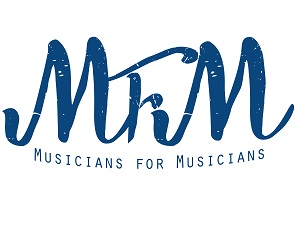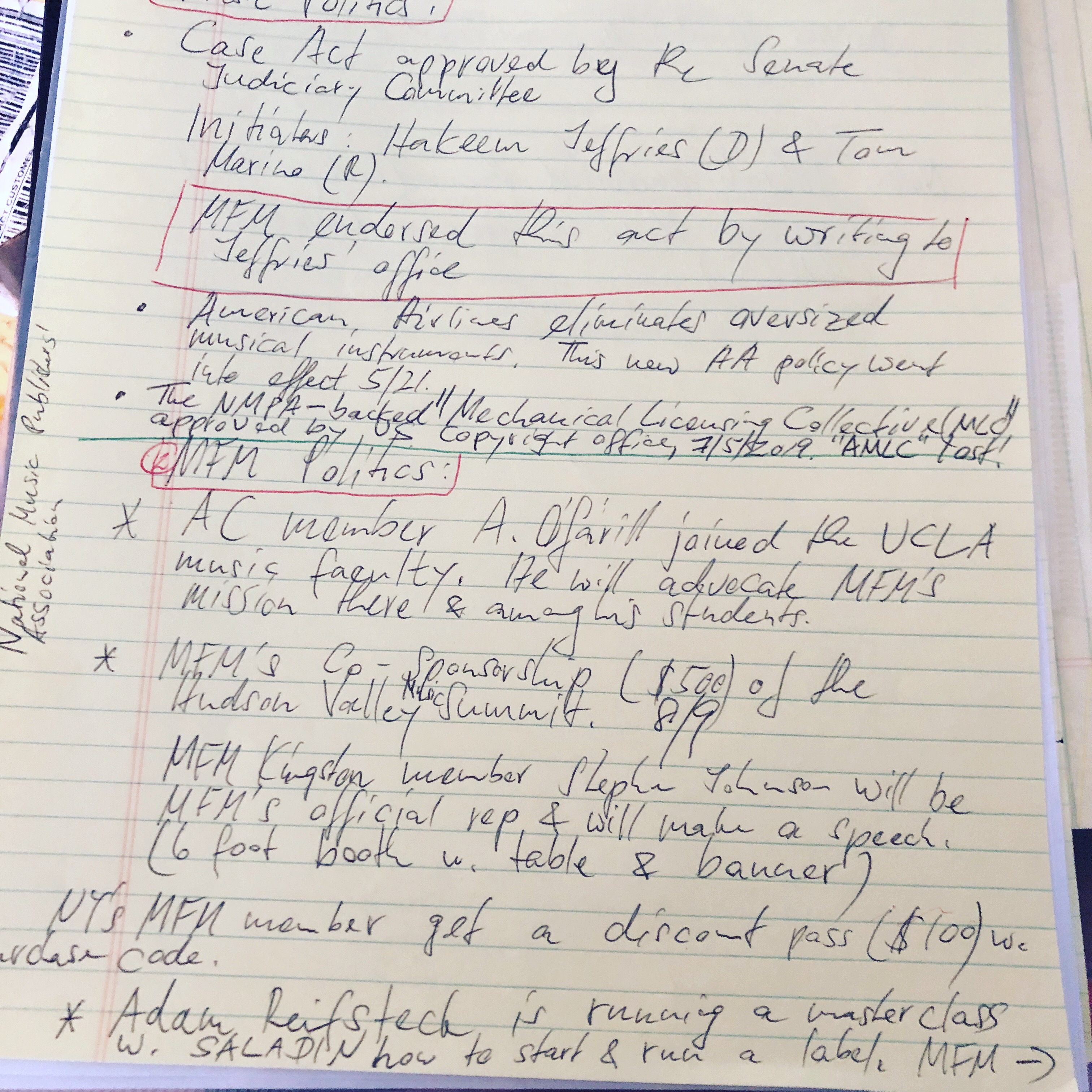MFM Public Musicians Forum #16 Report
Date: July 24, 2019
Venue: WingSpan Arts (NY)
By Dawoud Kringle
On Wednesday, July 24th, 2019, MFM held its Public Musicians Forum #16 at Wingspan Arts in New York City led by Sohrab Saadat Ladjevardi (President) and Billy Harper (MFM Board).
The meeting began with a discussion of the Case Act (The Copyright Alternative in Small-Claims Enforcement Act of 2019 is a proposed United States law that would provide a new means for copyright holders to seek payment for infringed works. It would create a copyright small claims court, allowing for arbitration, within the Copyright Office. Creators could elect to use the system and either represent themselves or seek the help of law students on a pro bono basis).
On Thursday, July 18th, Senate Judiciary Committee voted to move the CASE Act out of committee, bringing the legislation one step closer to becoming law. The bill can now go to the floor to be voted on by the full Senate. It would allow musicians to sue streaming providers (such as Spotify and YouTube). Damages would be capped at $15,000 for each work infringed, and $30,000 in total. The system would be staffed by three full-time “Copyright Claims Officers” to be appointed by the Librarian of Congress.
MFM’s official position is that we endorse the bill. End of April, MFM President Sohrab Saadat Ladjevardi wrote a letter to Congressman Hakeem Jeffries (D. NY) informing him that MFM supports his efforts to pass this bill.
Roger Blanc mentioned the American Federation of Musicians and Employers’ Pension Fund (AFM-EPF) and the Butch Lewis Act, and suggested contacting our congressperson urging them to support this.
Some discussion was devoted to the vast discrepancy between touring income and publishing income. Taylor Swift, for example, made $50 million in touring, and only $800K in publishing. The money isn’t there like it once was.
Saadat shared that the Music Licensing Collective (MLC) were chosen by the Copyright Office to handle the distribution and management of royalty money from the DSPs. This was followed by some lengthy discussion about how the economics of being a self-employed musician has taken on new and unprecedented contours.
The good news of American Airlines’ recent move to eliminate baggage fees for oversized musical instruments was brought up. It is hoped that other airlines will follow their example. While this is a step in the right direction, it does nothing to solve the problem of airlines damaging or destroying musical instruments.
MFM Advisory Committee Member Arturo O’Farrill recently joined the UCLA Music Faculty. In a conversation he had with Saadat, he said he’d promote the MFM agenda to his students. O’Farrill’s position, like other AC Board Members such as Dr. Cornell West will have a greater impact to further awareness of MFM’s mission.
Saadat reported about MFM’s Hudson Valley Music Summit Co-Sponsorship.
MFM member and founder of Teknofonic Adam Reifsteck has announced that he has partnered with a colleague named Larry Saladin (producer, DJ, founder of Phunk Junk Records, and label manager of Trax Records) in presenting a master class in how to start and run a successful record label in the 21st century. Reifsteck has generously offered MFM members to attend the online master class for free (www.teknofonic.com. Promo code: PHUNKJUNK).
Finally, Saadat brought up the idea of a database of musician friendly venues. The process of putting this database together would be a collaborative effort by MFM members. This would be in the form of an Excel document that MFM members would all have access to. The attendees shared ideas of the details of how this and related processes can be approached.
This evolved into an impassioned discussion of the difficulties of promoting one’s performances while managing one’s other business affairs, and at the same time, being a creative musician.
Musicians have chosen a very difficult career that is hard on every aspect of our lives. It is up to us to take control of our own affairs, and make the world respect us.

